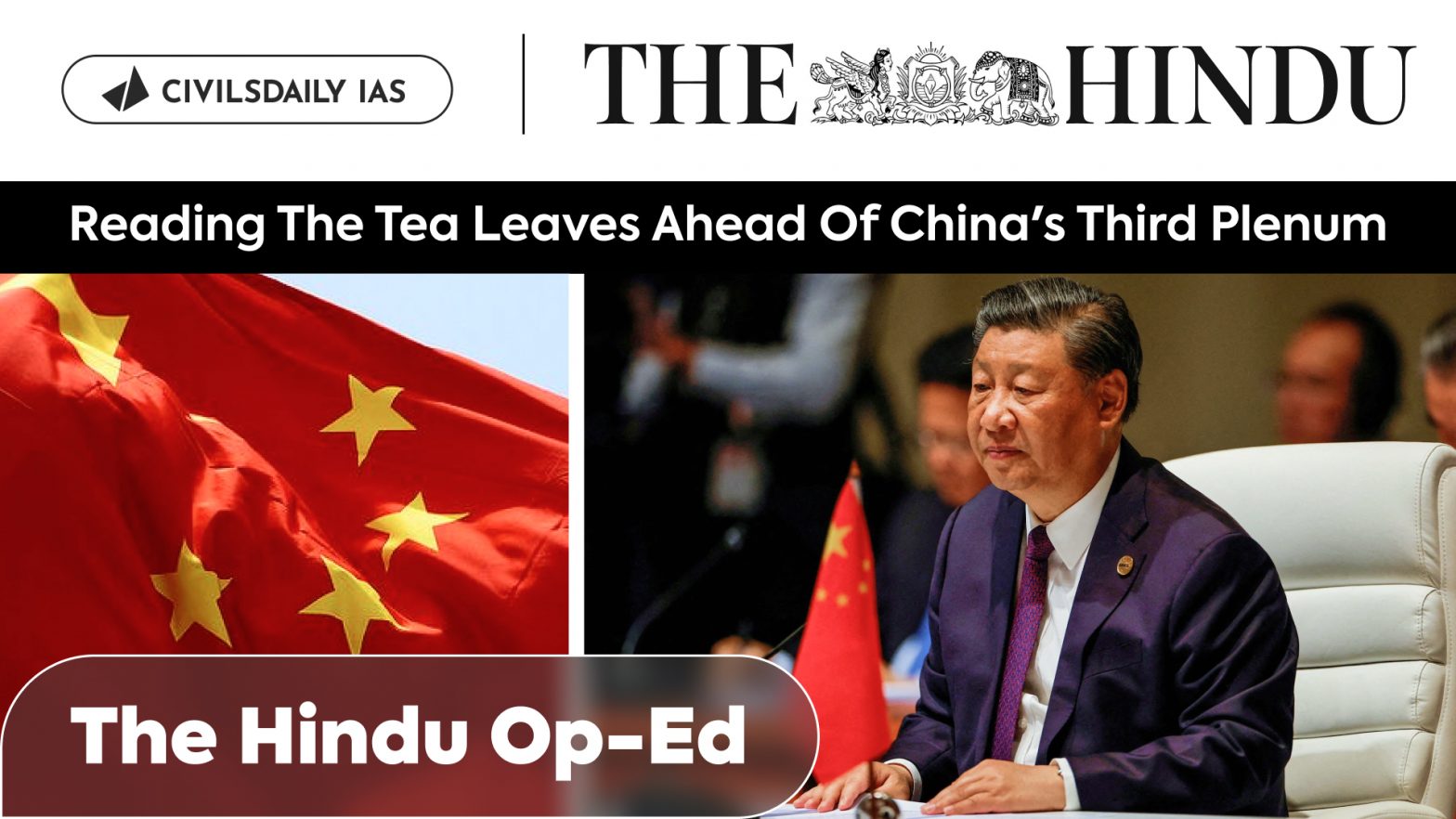| PYQ Relevance: Q The new tri-nation partnership AUKUS is aimed at countering China’s ambitions in the Indo-Pacific region. Is it going to supersede the existing partnerships in the region? Discuss the strength and impact of AUKUS in the present scenario. (UPSC IAS/2021) Q What is the significance of Indo-US defence deals over Indo-Russian defence deals? Discuss with reference to stability in the Indo-Pacific region. (UPSC IAS/2020) |
Mentors comment: Commentators in the West have long argued to move beyond the optimistic view of a post-Cold War world, suggesting that Moscow, Beijing, and their aligned states cannot be expected to uphold a rules-based international order. Attention is now focused on China’s upcoming Third Plenum of the 20th Party Congress, scheduled for July 15-18, for potential signs of policy shift. Despite pessimism about China embracing mutual security, there remains hopeful anticipation for surprises and directional changes following economic challenges and global interest in the plenum’s outcomes.
Let’s learn!
__
Why in the news?
There is optimism that the plenum could indicate a shift in China’s direction.
| About the Third Plenums: Third Plenums historically set economic strategies for the next 5-10 years and are pivotal in China’s economic planning. The 1978 Third Plenum under Deng Xiaoping marked a significant shift towards economic reforms that revitalized China’s economy. |
Economic reforms, issues
- Advanced Timing of the Third Plenum: The early scheduling of the Third Plenum suggests China may be planning sweeping economic reforms to address current challenges and ensure future progress.
- Current Economic Challenges: China faces several economic challenges, including an ageing population, a shrinking workforce, high debt levels, and ongoing economic issues despite previous measures. These factors contribute to domestic pessimism about China’s economic future.
- Leadership Dynamics: There is uncertainty about whether the current leadership under Xi Jinping will embrace significant new economic reforms akin to those initiated by Deng Xiaoping. Any admission of past mistakes could impact Xi’s political standing and future leadership.
- Reform Necessity: There is a perceived necessity for China to experiment with new economic ideas and reforms to address current economic challenges effectively. However, uncertainties remain about the extent and nature of reforms that will be introduced.
The view about China’s ‘intentions’
- Perceived Threats and Activities: The West and others view China’s tactics like ‘gray zone coercion’, disinformation campaigns, interference in elections, and military provocations in the South and East China Seas as ongoing threats. Taiwan remains a focal point of China’s military and propaganda efforts, adding to regional tensions.
- Regional and Global Impact: China’s initiatives such as the Global Development Initiative (GDI), Global Security Initiative (GSI), and Global Civilization Initiative (GCI) reflect its strategic beliefs and influence. This perspective increases paranoia about China’s intentions, particularly in Asia, impacting regional stability.
- India-China Relations: India-China relations have deteriorated, exacerbated by border tensions and China’s perceived inflexibility despite India’s attempts at flexibility. India is concerned about China’s military capabilities, including missile and nuclear advancements, and sees a need to prepare for potential conflict scenarios.
Where India stands
- Economic Strength and Leadership: India is transitioning from a ‘middle level’ power to a ‘major’ power, with robust economic parameters that are among the best globally. The country is perceived to have strong and focused leadership, which enhances its capability to take significant initiatives on the global stage. India’s economic position and leadership are considered advantageous for taking proactive steps towards promoting world peace.
- Diplomatic History and Initiatives: India has a history of taking diplomatic initiatives, especially in its relations with China, which have had notable outcomes. Examples include past initiatives such as Sumdorong Chu and Wangdung, and Prime Minister Rajiv Gandhi’s pivotal visit to China in 1988, which contributed to decades of peace between the two nations. These historical precedents suggest that India has the capacity to play a proactive role in regional and global diplomacy.
- Current Strategic Advantage: The current geopolitical environment between India and China is relatively less tense compared to historical periods of conflict. India is seen to hold a stronger position vis-à-vis China than at any time in modern history, presenting an opportune moment for India to initiate significant diplomatic efforts. There is potential for India to leverage its position and historical diplomatic successes to foster positive outcomes for both countries, Asia, and the broader world.
Way forward:
- Diplomatic Engagement and Conflict Avoidance: India should prioritize diplomatic engagement with China to manage and mitigate tensions effectively. Focus on dialogue, negotiation, and confidence-building measures to prevent escalation of conflicts, particularly regarding border disputes and military posturing.
- Regional Leadership and Global Initiatives: Utilize India’s emerging status as a major global power to lead initiatives that promote peace and stability in the region and beyond. Engage proactively in international forums to advocate for peaceful resolutions to regional conflicts and enhance India’s diplomatic influence on the global stage.

